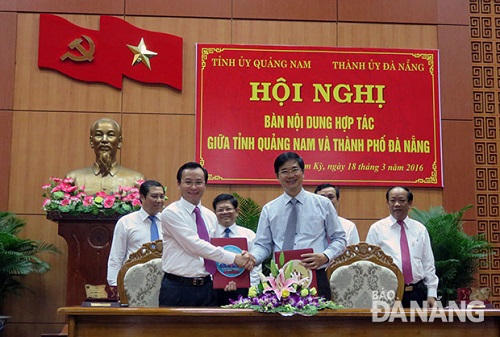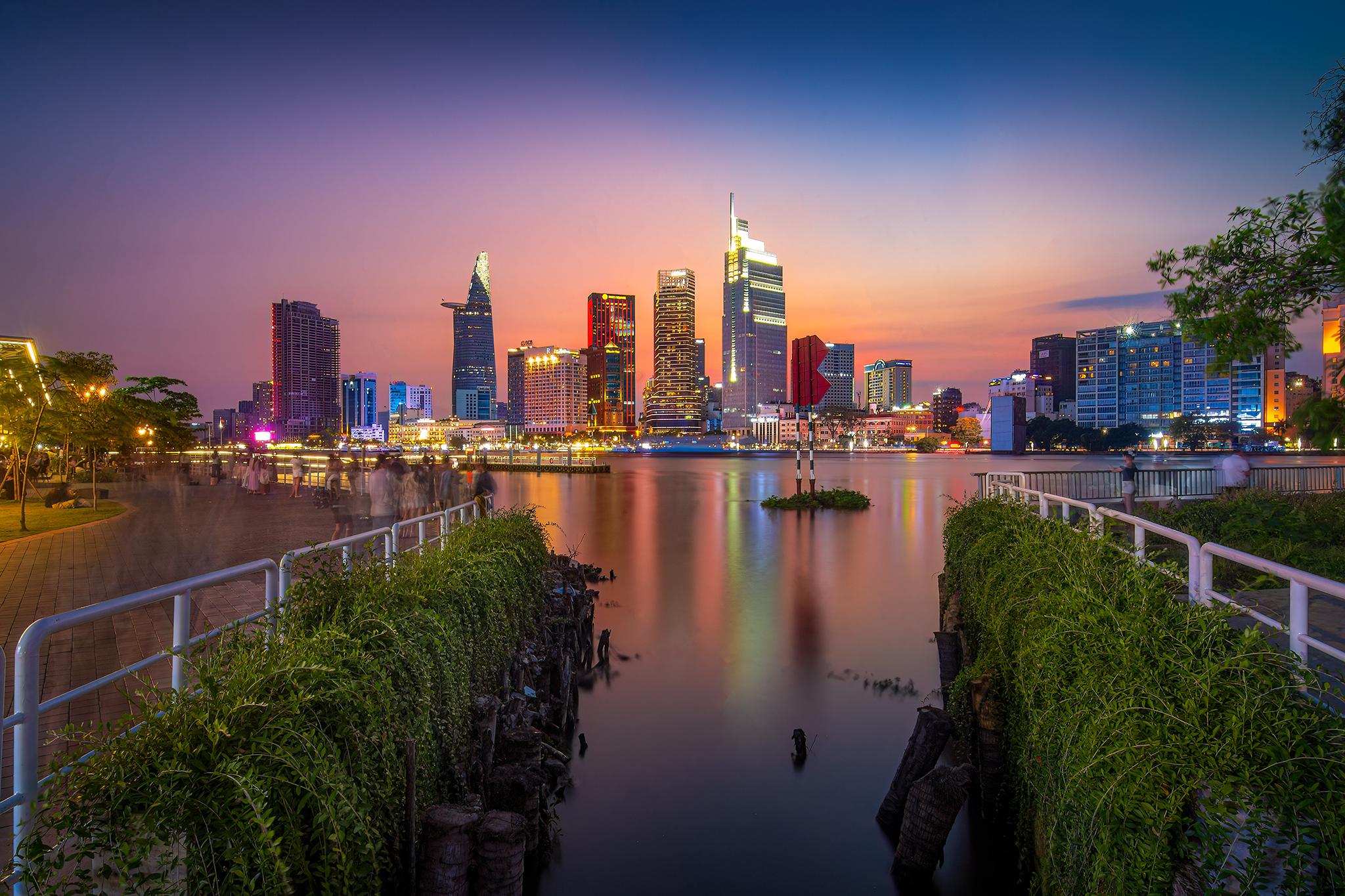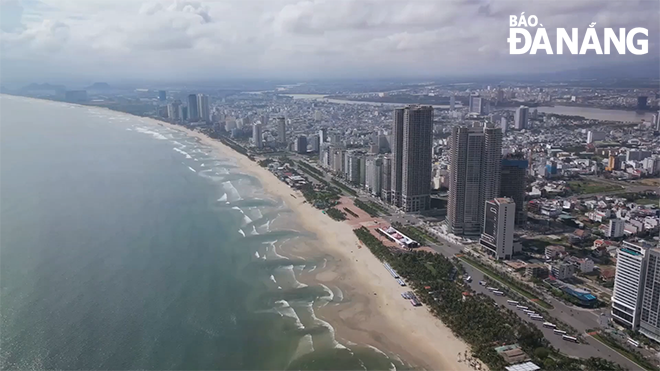Bilateral cooperation with Quang Nam Province aiming for new heights
A group of Da Nang leaders, led by municipal Party Committee Secretary Nguyen Xuan Anh, recently met with their counterparts in Quang Nam Province to discuss bilateral cooperation in the years ahead.
At the meeting, which was held in Tam Ky City, the 2 sides entered into an agreement to boost bilateral cooperation in various aspects on the basis of mutual benefit. The cooperation will be on planning, the economy, infrastructure, culture, social welfare, and education, as well as environmental and natural resources management to cope with the impacts of climate change.
 |
| A scene from the signing ceremony |
At the meeting, the hosts and their guests stressed the need to implement a project to widen and deepen the Co Co River in order to develop tourist boat tours on the river.
In addition, they agreed to ask central government to find effective measures to regulate water upstream in the Vu Gia-Thu Bon river system. The aim would be to deal with the water shortages and salinisation in downstream areas which have a negative impact on agricultural production and the lives of local residents.
The participants also agreed to ask the government’s permission to implement the Da Nang University Village project in Quang Nam Province’s Dien Ban District, which has been suspended for 19 years.
Over the past 8 years, Da Nang and Quang Nam Province have implemented many programmes of bilateral cooperation, and gained numerous positive results from them. Included are upgrading the 1A and 14B highways, expanding Tien Sa Port, starting the implementation of an expressway linking Da Nang with Quang Ngai Province, and entering into an agreement with Thua Thien-Hue Province to promote tourism cooperation. In 2010, Da Nang provided 10 billion VND to Quang Nam Province to help build the Nguyen Binh Khiem Senior High School for Gifted Students in Tam Ky City.
Over the period, both localities have also taken advantage of being part of the Heritage Road tour route, and at the endpoint for the East-West Economic Corridor, to develop a wide range of tours attracting even more domestic and international visitors.




